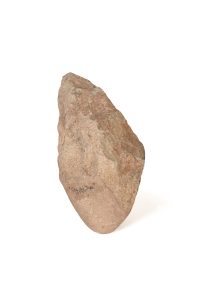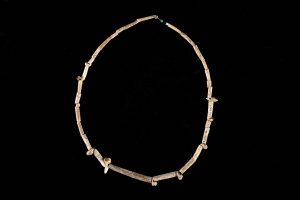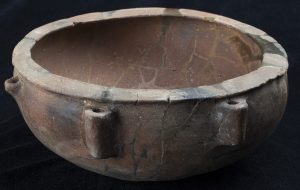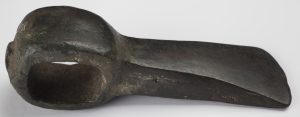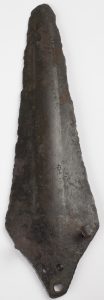- Object type
- harpoon
- Production date
- -13000 / -11000
- Fabric -
- Museum
- Museu d'Arqueologia de Catalunya - Girona
- Culture
- Prehistory
- Discovery location
- Bora Gran d'en Carreras
- Materials
- os
- Township
- Serinyà (Europa, Espanya, Catalunya, Girona, Pla de l'Estany)
- Technique
- carving, polishing
- Where is it?
- MASPG
- Dimensions
- 110 x 15 x 9 mm


